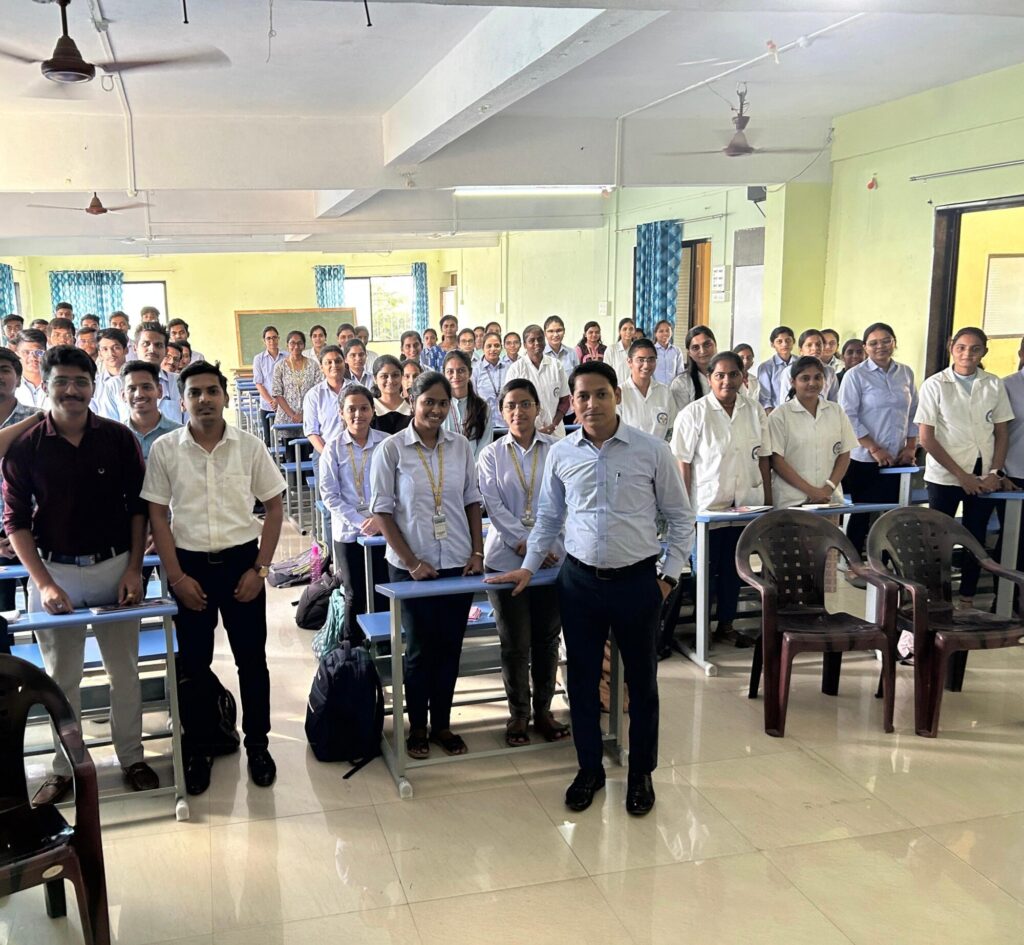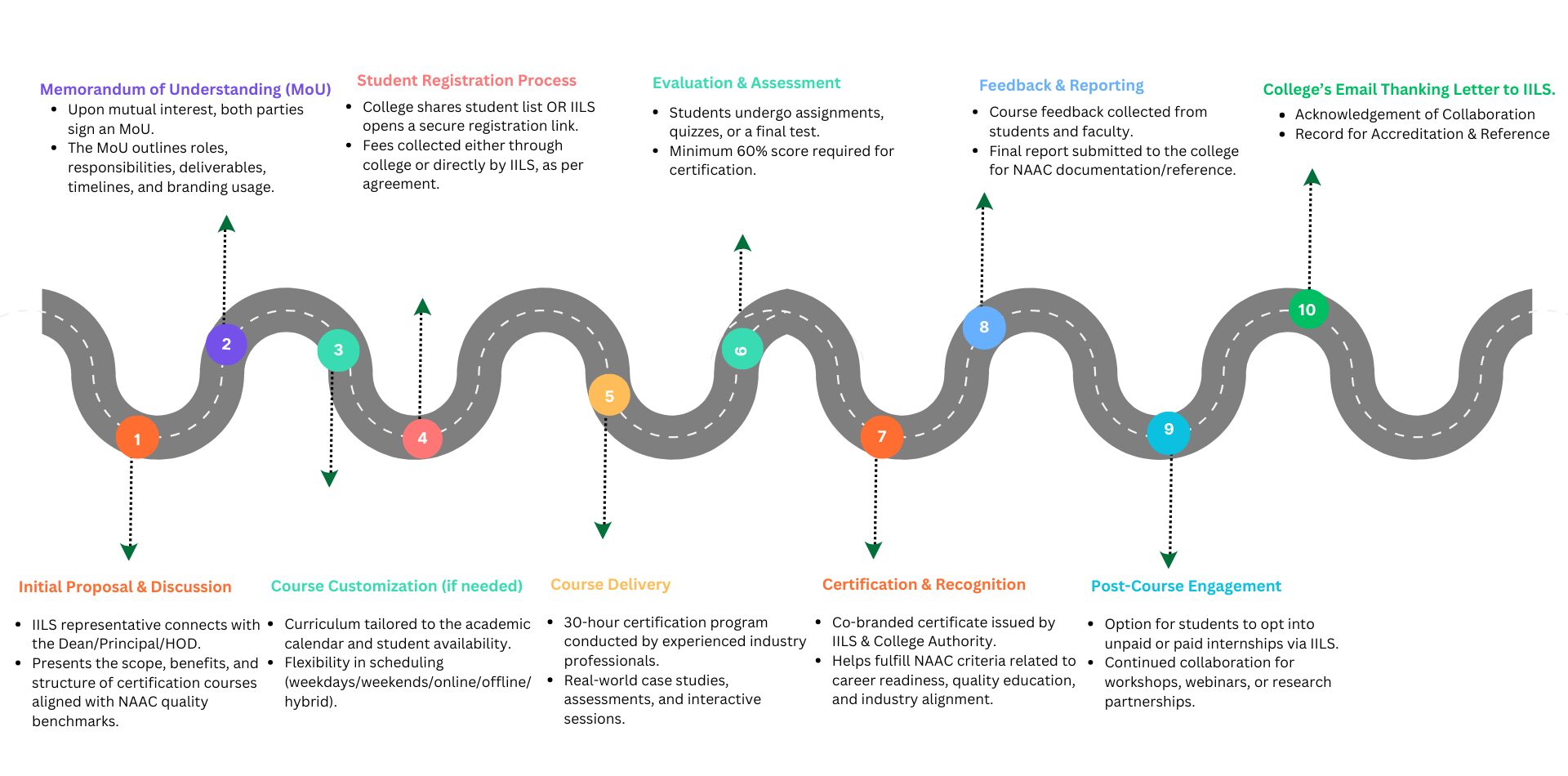Solutions for Pharmacy Colleges
NAAC-Aligned Certification Courses

1. Fundamental Insights of Clinical Research
- 30-hour certification program conducted by experienced industry professionals.
- Real-world Insights, assessments, and interactive sessions.
- Students undergo assignments, quizzes, or a final test.
- Minimum 60% score required for certification.
2. Fundamental Insights of Pharmacovigilance
- 30-hour certification program conducted by experienced industry professionals.
- Real-world Insights, assessments, and interactive sessions.
- Students undergo assignments, quizzes, or a final test.
- Minimum 60% score required for certification.
These programs are designed to equip students with industry-relevant knowledge, practical insights, enhance employability, align academic training and career-readiness in fast-evolving domains of healthcare and pharmaceutical sciences—(clinical research and drug safety).
Onboarding & Implementation Procedure for Colleges
📩 Collaborate With Us
Why This Matters?
– In Line with NAAC Expectations:
By embedding such practical, certification-based training, institutions not only improve student outcomes and placement potential but also reinforce their commitment to academic excellence and innovation—core pillars of NAAC accreditation.
More About Iqva Institute of Life Science (IILS)
✅ NAAC Compliance & Quality Initiatives
These courses support key NAAC focus areas such as Teaching-Learning & Evaluation, Curriculum Enrichment, and Student-Centric Learning.
✅ Global Relevance
The healthcare and life sciences sectors are evolving globally. We bring together experts, industry leaders, and learners to tackle real-world challenges with international significance.
✅ Bridging Academia-Industry Gap
Pharmacy graduates often lack exposure to real-world practices in clinical research and pharmacovigilance. These certification courses address this gap and improve student outcomes.
✅ Internal Quality Assurance
Colleges can demonstrate proactive academic enrichment, innovation, and curriculum enhancement during NAAC evaluations.
✅ Skill-Driven Learning
Students gain hands-on understanding of regulatory frameworks, drug safety, research protocols, and global best practices—making them more employable and industry-ready.

